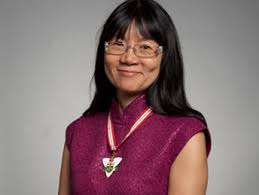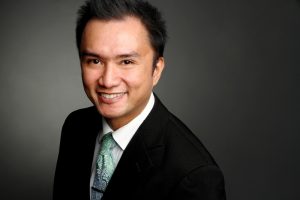As pandemic spreads, so does anti-Asian racism
As pandemic spreads, so does anti-Asian racism
By Irish Mae Silvestre
The Philippine Reporter

Atty. Avvy Go
What does it mean to be Asian during the pandemic?
It’s a topic that’s explored during the May 27 webinar ‘Resisting Anti-East Asian Racism.’ Hosted by University of Toronto’s Office of Inclusion & Diversity, panelists discussed the multifaceted issue of racism, with incidents on the rise as a result of COVID-19. In fact, the Canadian Union of Public Employees (CUPE) reported that in a recent survey of Manitoba health-care workers, one in five who self-identified as being of Asian heritage experienced racism in the workplace in March.
The Philippine Reporter spoke with panelists about how the pandemic sheds light on racism in Canada and its effect on Asian frontline workers.
Avvy Go is the clinic director of the Chinese and Southeast Asian Legal Clinic and a founding steering committee member of Colour of Poverty – Colour of Change. Since her call to the Bar in 1991, she has worked exclusively in the legal clinic system, serving the legal needs of low-income individuals and families.
Jeffrey Andrion is a faculty member of the Ontario Internationally Educated Physical Therapy Bridging Program at the Department of Physical Therapy at U of T, physiotherapist at the Sunnybrook Health Sciences Centre and Co-Chair of the Philippine Working Group of the International Centre for Disability and Rehabilitation. He is currently completing his PhD studies at York University.
Were you surprised that Asians are being targeted because of the pandemic?

Jeffrey Andrion
Andrion: No, not at all. When the 1918 pandemic hit the globe, everyone thought that the virus came from Spain; it did not. It doesn’t help when one starts associating COVID-19 with a certain race, especially when the origin hasn’t been scientifically established yet. If there’s one thing that the virus taught us about racism, it’s that the bodies of minority races and disenfranchised groups are not only easy suspects as virus or germ carriers, but also as easy prey for the privileged groups.
Go: Before the WHO called it a pandemic, the anti-Asian and anti-Chinese sentiments had already started in Canada. It’s nothing new every time there’s some kind of a virus and we saw this during SARS. It’s very entrenched in the psyche of Canadians that Chinese and disease are linked.
What does this mean for frontline workers?
Andrion: A lot of Filipino healthcare workers work in nursing homes, which have been badly hit by the pandemic. Therefore, if the Asian body – or the Filipino body – is already stigmatized as a virus carrier, then it’s compounded by the fact that they work in areas where the rates of infection and death are higher. It’s double discrimination: discrimination because of your identity and owning that stigmatized body, as well as discrimination because you happen to work in a high-risk area.
Go: Farm workers and meat-packing factory workers have to do the work, but companies just aren’t willing to pay them enough or give them enough protection to allow them to work safely. Canada’s immigration system is set up to “attract the best and brightest.” [By doing so], we create hierarchies within those ranks. So-called high-skilled workers can come in without any question and get their status upon landing. Those who have so-called semi-skills or unskilled work come in as temporary workers and caregivers and have conditions attached to their status. Their status is tied to their employers, making them vulnerable and exploitable.
How should the government tackle this issue?
Andrion: In the case of factory workers, the precariousness of their situation might prevent them from speaking up against unsafe working conditions, as well as micro-aggression and discrimination. It’s critical that the government should focus its attention on factory workers or those in the service industries as important front liners who have been affected by this pandemic.
Go: We’ve been pushing for the government to do public service announcements about anti-Asian racism, but they haven’t responded to that. We’ve been pushing for establishing an anti-racism task force or committee just as they had done for people with disabilities. I think it is harder now at least for the government to say there’s no racism [in Canada]. Trudeau has come out to acknowledge its existence. Hopefully, it’ll turn the dialogue even if it’s a more reluctant admission that it exists so that we can have some dialogue around how to address it.
Comments (0)